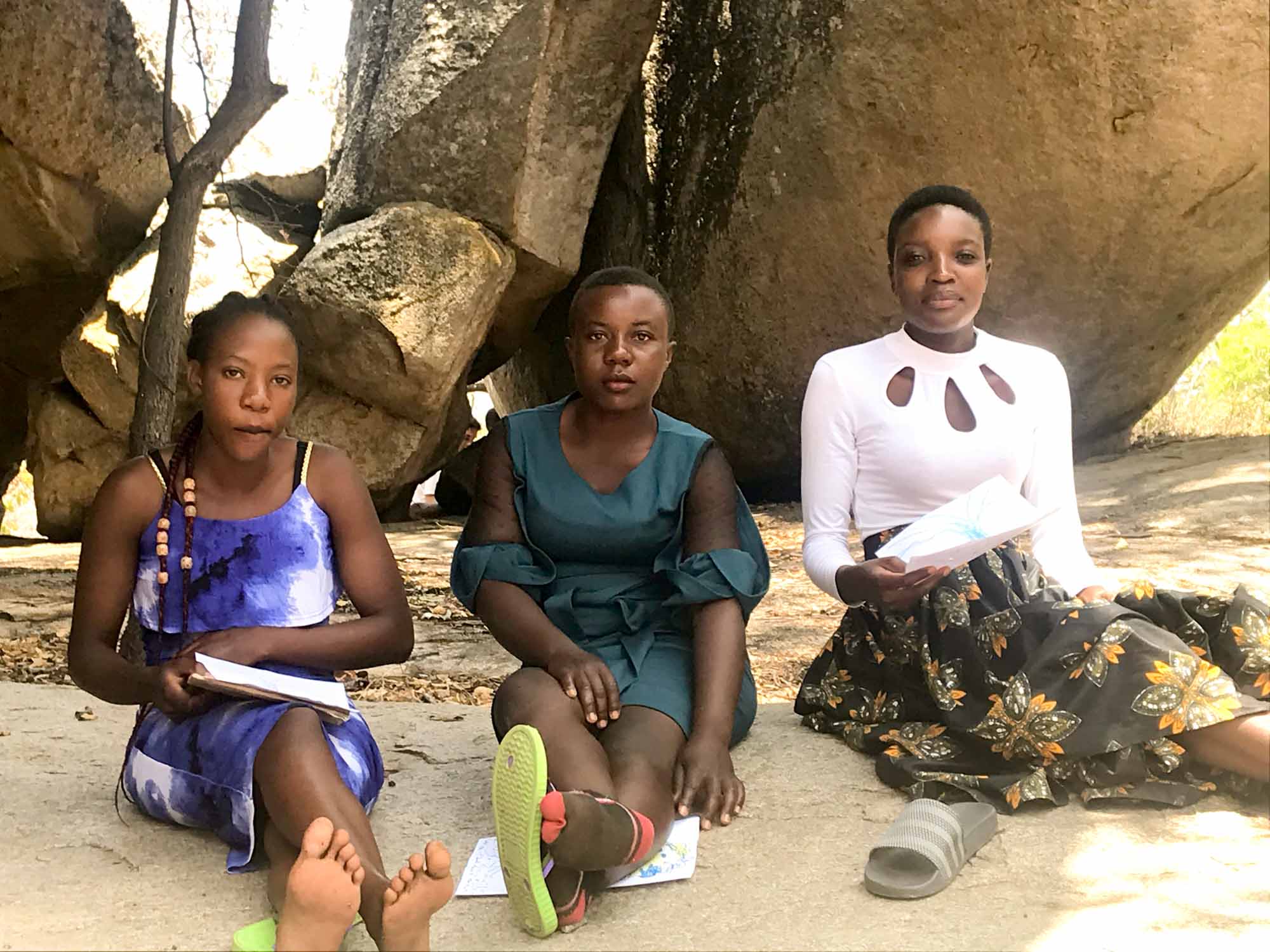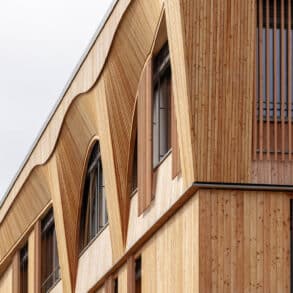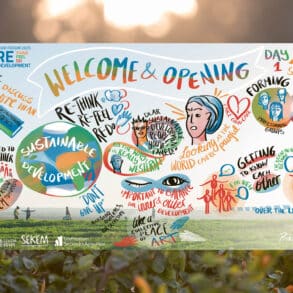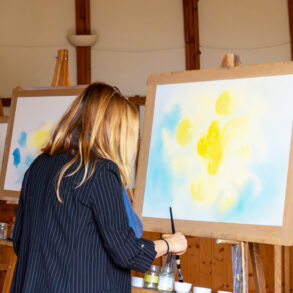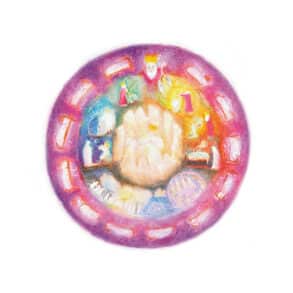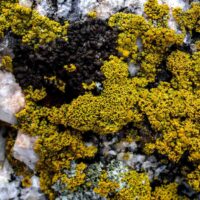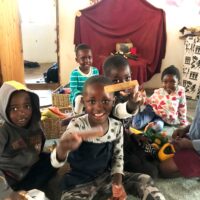Sikhethiwe Mlotsha is the moderator for the women’s and young people’s workshops in Kufunda. She loves this work. She dreams of having her own retreat center where people can come to themselves.
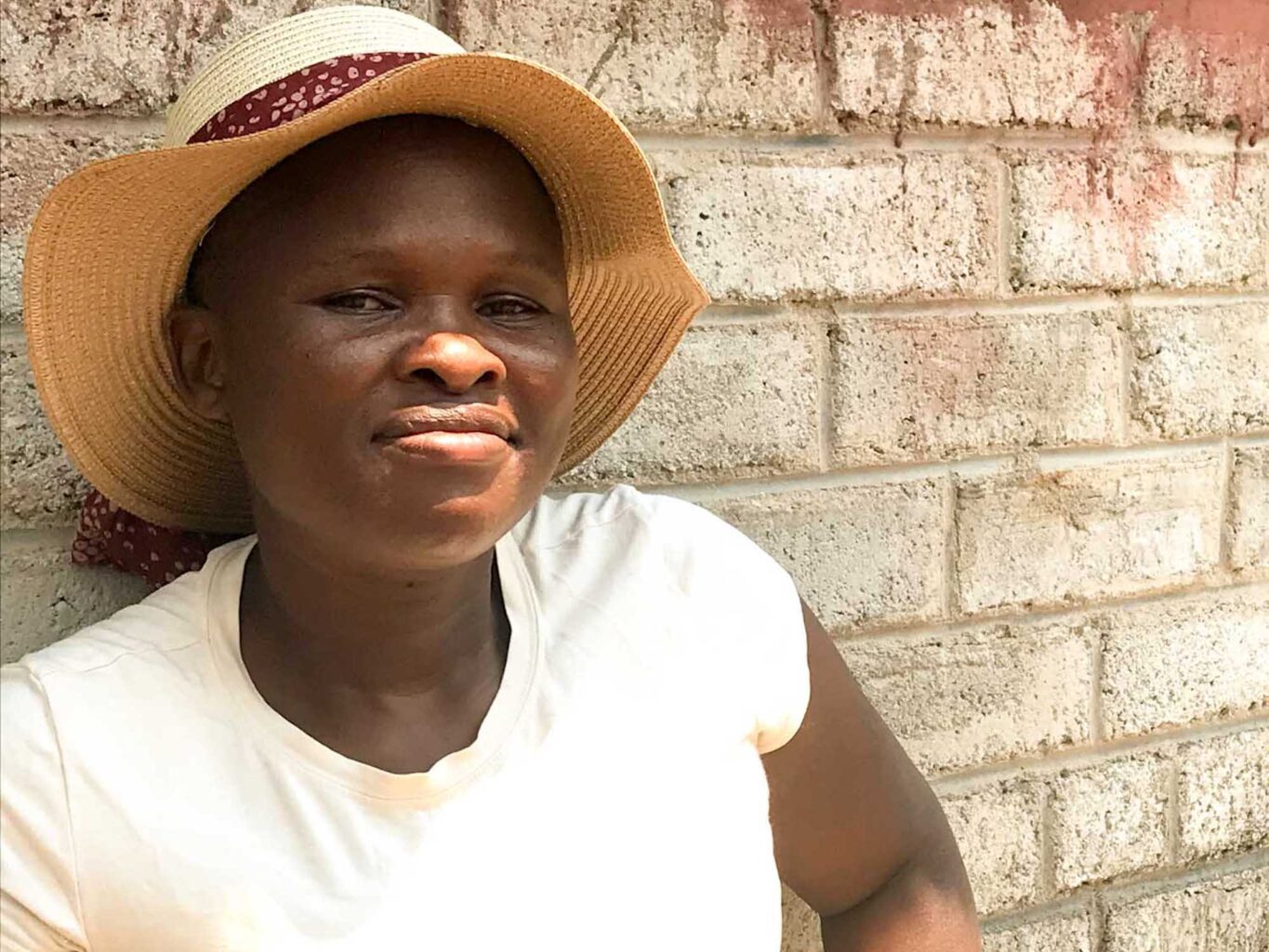
«The story African women carry is that we need to be good wives and mothers. We need to be strong. I learned that at school. The girls know they will get married anyway, so there’s no reason to invest in them. I knew that someone would pay my bride price when I grew up. I have to stay with him and do things as he wants. I will be a mother and take care of the family. He is the head of the family, and as a woman, I am not allowed to tell him what to do. But we also need time and space for ourselves to recognize what is still inside of us. After doing different processes, I realized that I had brought something, like a gift for life. Yes, I can care for others, but there is something that means Sikhethiwe that I bring within myself. So this work is very important for me to recognize some of our gifts and passions and bring them to life. A chain of understanding of who we are begins. Women share their stories or even let them go. So we’re going through a profound process of unlearning some of these narratives. What do you hear in your heart? What makes your heart sing? And we celebrate our lives together as women, as sisters. Some of the women feel lucky because they have longed for such a space. Some women are confused at first. You need time to understand all this. For most of them, Kufunda is another world. It is human nature that we need our space. Freedom isn’t about fighting. It’s about finding it within yourself. Life in Zimbabwe is challenging, but I can do something for myself. Confidence grows. This work changed me. Sometimes I can’t say everything in my relationship, but there are things I can say. I am free in my relationship. I no longer think that I was bought but that we are in a relationship. This also changes the attitude of my three sons. The environment in Kufunda and the school do the same. These kids ask questions! My boys could be better husbands. We have conversations about what it means to be a boy. In the youth programs, we support young people to search for their dreams and to see how they can bring them to life, to see life positively without denying the challenges. We also talk about drug use, abortions, and freedom. I think this generation wants freedom. Most young people finish school and are then stuck. We have to find a new way of working. We explore that together with you. It is easier to find your way, even in difficult life situations. And it works.»
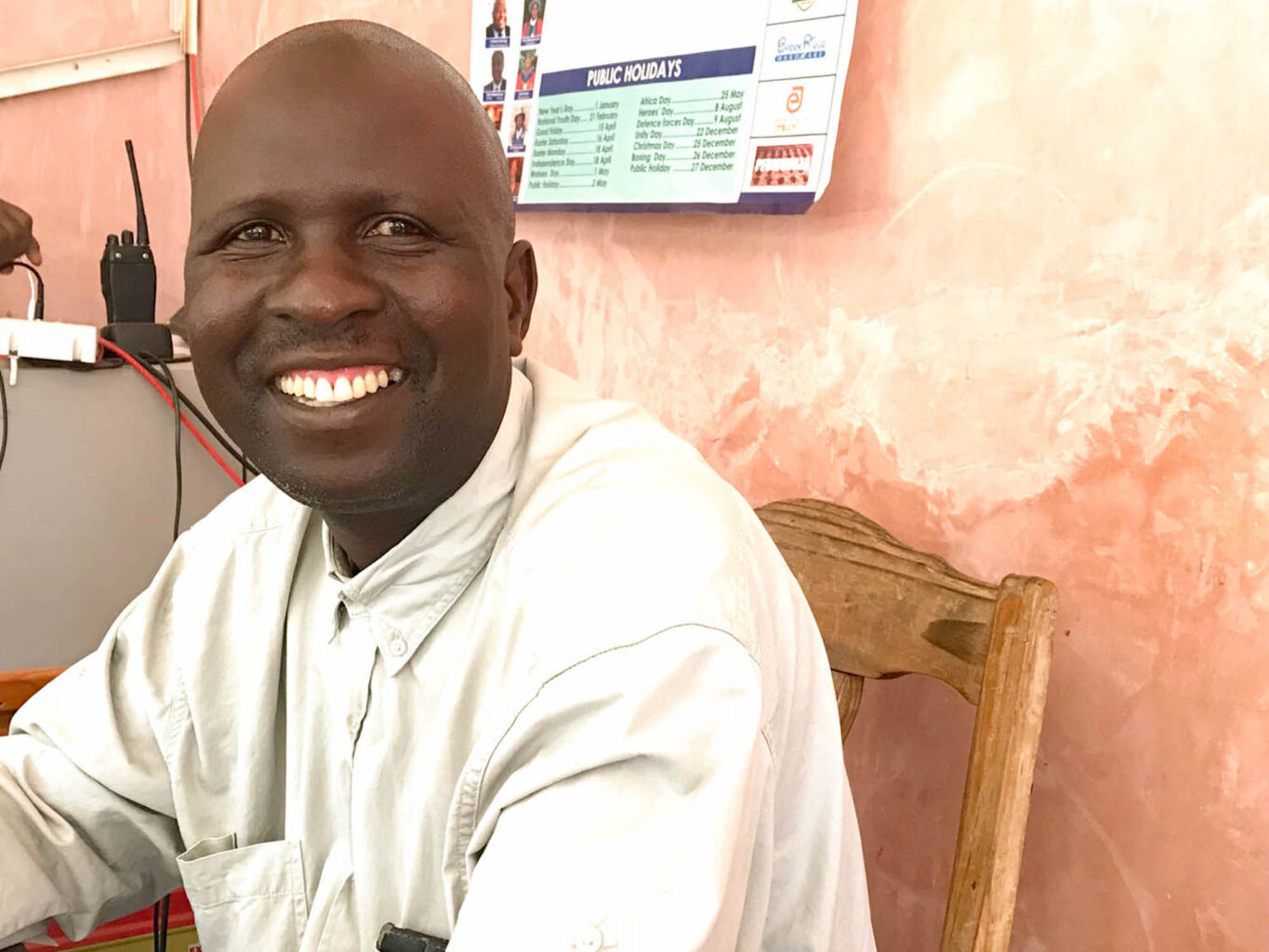
Thomas Ambali has been with Kufunda since the beginning, first as a student, and then as a leader. Since 2017, he has been doing all the administration and bookkeeping. At the time of my visit, he was busy booking flights for participants of the African Biodynamic Conference, sponsored by Kufunda and hosted there.
«It is the way we conduct conversations that is different in Kufunda. We use a circle where everyone gets to speak. In the old days of our ancestors, they sat in circles around the fire to discuss important things. In politics today, many people live in a dictatorship. Now we are changing this mentality step by step by working with the chiefs, headmen, and politicians. The chiefs also see the benefits of this change. They have come to Kufunda several times for leadership training and have learned what we have learned. When we hosted the 2019 All African Anthroposophic Training in Kufunda, we also invited the community chiefs – it was mainly about Biodynamic issues. Most of the farmers have accepted the methods of farming that we’ve presented to the communities. They also come here and learn from us.
Anthroposophy has changed me a lot – the Ambali you now see is very different from the one I was before we started reading Anthroposophical texts. I used to be grumpy, not easily convinced, believing there was nothing wrong with me, neither accepting criticism nor my faults. The texts have changed a lot in me, as I’ve begun to look at myself from the inside. And this inner person is the Ambali who speaks now. I have difficulty with some of Steiner’s words – they are very profound. You must ask yourself: what does this mean? I need someone who knows about it, who can translate a little bit, as with foreign vocabulary. That may well be the business of the community because it also depends on the art of asking questions.»
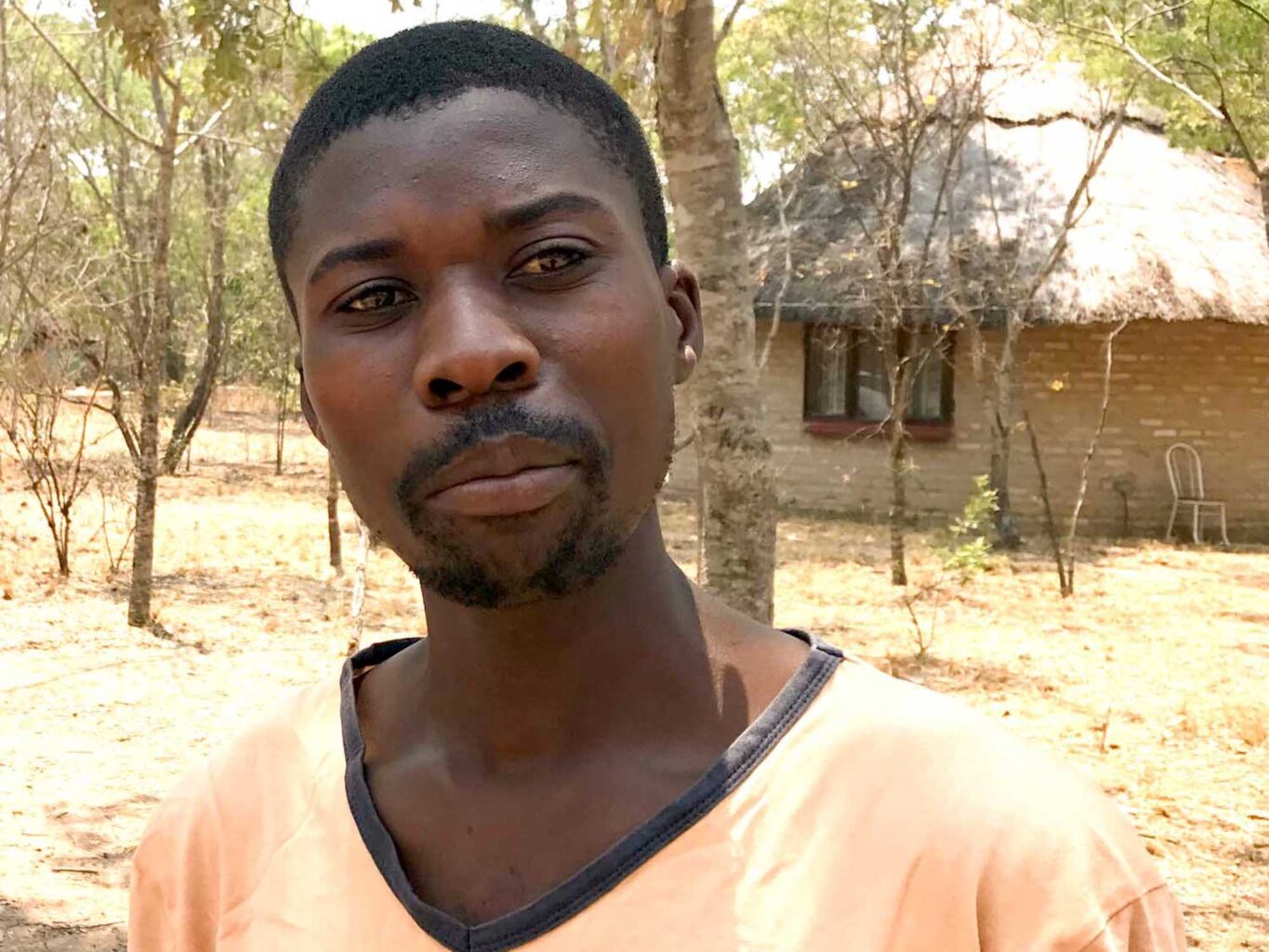
Enock Kadonzvo lives with his wife and two children in the village of Kufunda, where he takes care of transportation and leads workshops on food and herb processing.
«I came to Kufunda in 2010 for a nine-month youth program and learned about beekeeping, the art of hosting, food processing, and mushroom cultivation. I wanted to learn more about herbs. Kufunda is a community where people live and work together – it’s a registered organization, a foundation, and open to anyone who wants to come and find a quiet place. People host workshops here and we provide catering and accommodation – for example, at the trauma workshop. They like how we do things here, how we see people, how we welcome them, how we take care of this area, and how we build our houses. We work in teams that meet every week to discuss decisions. I also like the idea of ‹mixing cultures› here because it helps us see things. Visitors can see what’s missing, but also appreciate what’s here – this has given us the impression that we should keep going. Therefore, we’ve coined the term ‹communiversity› — we’re one community, but it’s diverse.
My first Anthroposophic training was in Kenya in 2018 with more than 100 people of different nationalities from Africa and around the world. It was very impressive and well-designed. We learned a lot about how to change our mindset and think positively, and we had time to engage with nature and how it speaks; I learned about the shapes of trees and flowers. Michaela Glöckler explained the processes so well. We also learned about Biodynamics. After Kenya, we were the hosts in Kufunda for the All African Anthroposophic Training. In 2020, it was in Tanzania, and always with the participation of people from different countries in Africa. It was unique for me to learn about spiritual science. However, if you only read and don’t practice, sometimes it doesn’t make sense – it’s a process. We read about life after death – this has a lot to do with us as Africans; we believe in ancestral lineage. For example, when someone dies, the spirit can still be there for 72 hours, and can hear us, but can no longer speak. Anthroposophy is a kind of knowledge that comes as consciousness within me – Steiner was able to see and reveal it. He was a person who understood more of the spiritual. Such people also exist in Zimbabwean history, perhaps only in other contexts, in our churches. A wise person is spiritual – the ideas of Anthroposophy are connected to reality.»
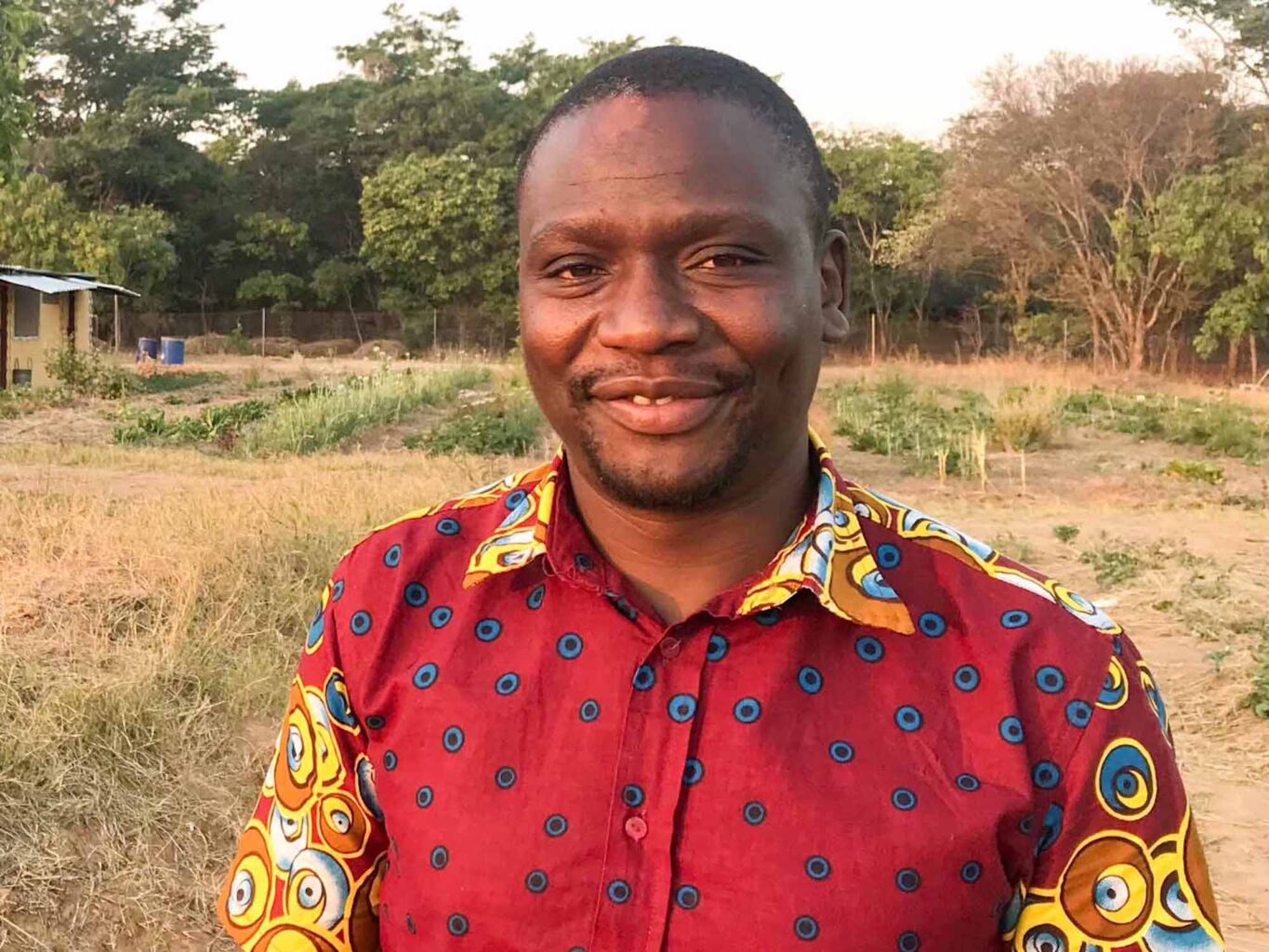
Admire Gwatidzo organizes men’s workshops and is part of the Communiversity team in Kufunda. He prefers to work with groups in a circle so that everyone is perceived as a voice. Our conversation began with the question of what he considers typically African.
«It is typically African to be good hosts. We are happy to welcome people, even without an invitation. You just show up, and you’re always welcome. We do not specifically prepare for visitors but are always prepared for them, even if they come in the middle of the night. And I think we care about each other a lot more in Africa than people in Europe or America. I take care of all my brothers and sisters financially and psychologically, all my mothers (not just my biological one), and my mother’s sisters and brothers. It’s my responsibility if they’re in trouble. We come together as one big family and support each other from there.
As Zimbabweans, we need to find ways to solve Zimbabwe’s problems by preserving what works in our culture and adopting from the outside what we like, but not simply copying it. That’s a big challenge. For example, I was beaten at school. It wasn’t good, but it was also right somewhere and sometime. So, to initiate a transition, you must educate people before legislating. So that they understand where the new approach comes from. Another example: The issue of gender equality has caused a lot of confusion across Africa as the laws have been enforced. Personally, I have no problem with gender equality, but with the way the law comes about. You have to take the time to teach people what it means. We’re talking about equality. What does equality mean? People must be able to understand. It’s the approach of simply enforcing things. Since then, there have been many divorces and also major disagreements in the communities with this law. The approach, i.e., the law, came from above! It didn’t grow from the bottom up. But things change over time. What our ancestors lived is different from the life I live today. It takes an organic approach to this collaborative work and enough time to digest it. In Europe or America, things like that are enforced, and we just accept it because it’s the law. This creates a lot of confusion for us. In our workshops, we, therefore, work with a participatory approach. We bring everyone’s voice and wisdom to be heard. We have to weigh the positives and negatives of the issue. You can’t blame anyone because we’re all involved. Wisdom can emerge in each of us. We don’t want to impose anything. Just listen to what people want to do for sustainability in their community. And I always say what we teach is a life. We do not exclude the wisdom in the communities and our nation. And this approach makes the difference.»
Translation Monika Werner and Eliza Rozeboom
Title image Young women and girls from Kufunda. All photos: Gilda Bartel, 2022

